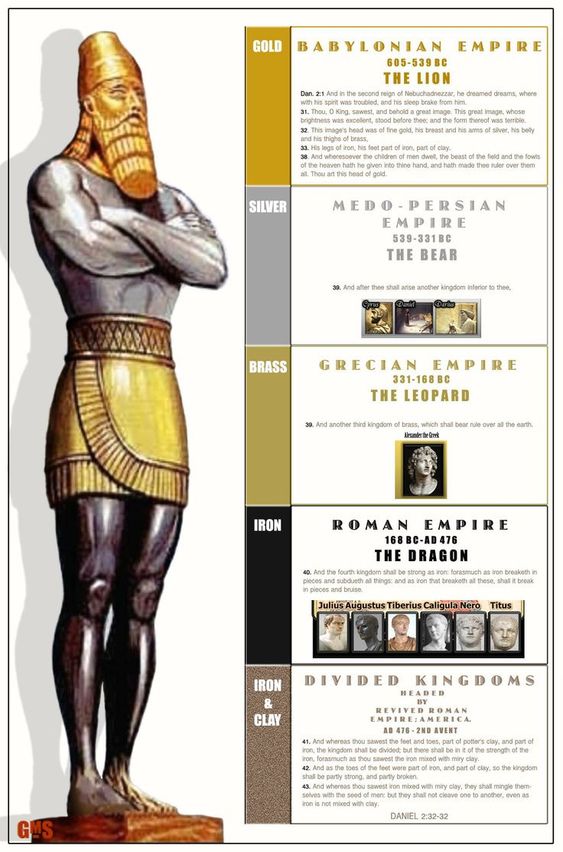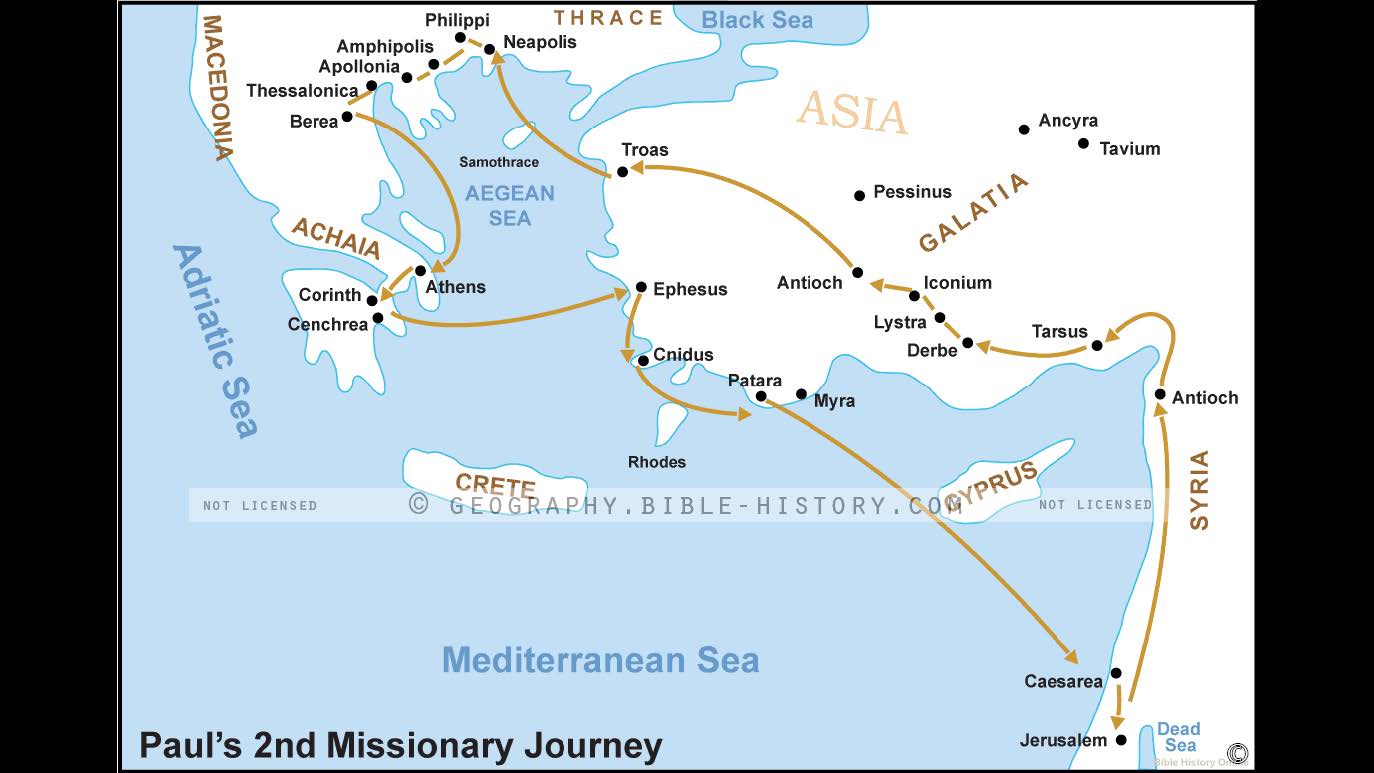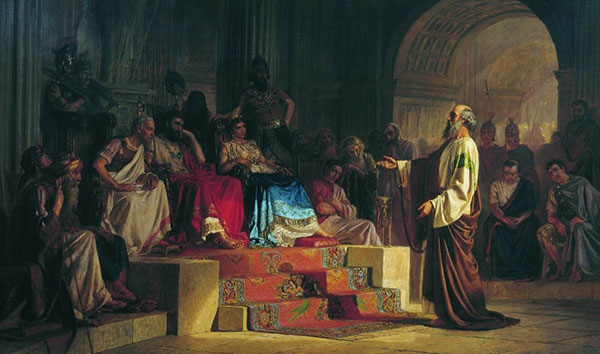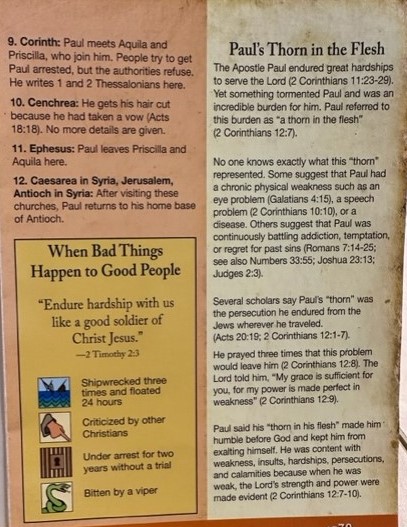| [11:26 am,
18/05/2025] William:
Certainly!
The Apostle
Paulís teachings
were foundational to
early Christianity.
Below is a *concise
summary of the key
lessons* from his
letters:
1. Salvation by
Grace Through Faith*
- *Key Lesson:* We
are saved by Godís
grace, not by good
works or religious
rituals.
- *Key Verse:*
"For it is by grace
you have been saved,
through faithóand
this is not from
yourselves, it is
the gift of Godónot
by works, so that no
one can boast."
(Ephesians 2:8-9)
2. The Centrality of
Christís Death &
Resurrection*
- *Key Lesson:*
Jesusí sacrifice and
resurrection are the
core of the Gospel.
- *Key Verse:*
"If Christ has not
been raised, your
faith is futile; you
are still in your
sins." (1
Corinthians 15:17)
3. Righteousness
Comes
fÖRighteousness
Comes from Faith,
Not the Law*
-
*Key Lesson:*
Following Old
Testament laws (like
circumcision) is
unnecessary for
salvationófaith in
Christ is enough.
- *Key Verse:*
"A person is
justified by faith
apart from the works
of the law." (Romans
3:28)
4. Living a
Transformed Life in
Christ*
- *Key Lesson:*
Believers should
live holy, loving
lives, empowered by
the Holy Spirit.
- *Key Verses:*
- "Therefore, if
anyone is in Christ,
the new creation has
come." (2
Corinthians 5:17)
- "Walk by the
Spirit, and you will
not gratify the
desires of the
flesh." (Galatians
5:16)
5. Love Is the
Greatest Virtue*
- *Key Lesson:*
Without love,
spiritual gifts and
knowledge are
meaningless.
- *Key Verse:*
"And now these three
remain: faith, hope,
and love. But the
greatest of these is
love." (1
Corinthians 13:13)
6. Unity in the
Church (The Body of
Christ)*
- *Key Lesson:*
Christians are one
body with different
gifts, called to
work together.
- *Key Verse:*
"Just as a body,
though one, has many
parts, so it is with
Christ." (1
Corinthians 12:12)
7. Suffering Has
Purpose*
- *Key Lesson:*
Trials produce
endurance,
character, and hope.
- *Key Verse:*
"We also glory in
our sufferings,
because we know that
suffering produces
perseverance;
perseverance,
character; and
character, hope."
(Romans 5:3-4)
8. The Hope of
Eternal Life &
Christís Return*
- *Key Lesson:*
Jesus will return,
and believers will
be resurrected to
eternal life.
- *Key Verse:*
"For the Lord
himself will come
down from heavenÖ
and the dead in
Christ will rise
first." (1
Thessalonians 4:16)
---
### *Summary in One
Sentence:*
Paul taught that
*salvation comes by
grace through faith
in Christ*, leading
to a transformed
life of love, unity,
and hope, all while
awaiting Jesusí
return.
Would you like a
deeper focus on any
of these themes?
The Apostle Paul was
*instrumental in
shaping early
Christian teachings*
through his
missionary work,
letters (epistles),
and theological
insights. Below is a
detailed breakdown
of his key
contributions to
early church
doctrine:
1. Core Theological
Teachings*
Paulís writings laid
the foundation for
many central
Christian beliefs:
A. Justification by
Faith (Not Works of
the Law)*
- *Key Passage:*
"For we maintain
that a person is
justified by faith
apart from the works
of the law." (Romans
3:28)
- *Impact:*
- Challenged
Jewish-Christian
legalism (e.g.,
circumcision,
dietary laws).
- Emphasized that
salvation comes
through *faith in
Christ*, not ritual
observance.
B. Grace Over
Legalism*
- *Key Passage:*
"For it is by grace
you have been saved,
through faithóand
this is not from
yourselves, it is
the gift of Godónot
by works, so that no
one can boast."
(Ephesians 2:8-9)
- *Impact:*
- Freed Gentile
converts from strict
Jewish customs.
- Established
Christianity as a
*faith-based* rather
than *law-based*
religion.
C. The Cross &
Resurrection*
- *Key Passage:* "If
Christ has not been
raised, our
preaching is useless
and so is your
faith." (1
Corinthians 15:14)
- *Impact:*
- Centralized
*Christís death and
resurrection* as the
core of the Gospel.
- Provided hope for
believers' future
resurrection.
D. Union with Christ
("In Christ")*
- *Key Phrase:*
"Therefore, if
anyone is in Christ,
the new creation has
come." (2
Corinthians 5:17)
- *Impact:*
- Taught that
believers are
spiritually united
with Jesus.
- Influenced later
doctrines on
*sanctification and
Christian identity*.
2. Practical Church
Instructions*
Paulís letters
addressed real
issues in early
churches:
A. Church Leadership
& Structure*
- *Key Passages:*
- "Now you are the
body of Christ, and
each one of you is a
part of it." (1
Corinthians 12:27)
- Qualifications for
elders/deacons (1
Timothy 3, Titus 1)
- *Impact:*
- Established roles
like *elders,
deacons, and
apostles*.
- Encouraged *unity
and order* in
worship (1
Corinthians
14:26-33).
B. Ethics &
Christian Living*
- *Key Teachings:*
- *Love as the
greatest virtue* (1
Corinthians 13)
- *Sexual purity* (1
Thessalonians 4:3-5)
- *Submission to
governing
authorities* (Romans
13:1-7)
- *Impact:*
- Provided moral
guidelines for new
converts.
C. Spiritual Gifts &
Worship*
- *Key Passage:*
"There are different
kinds of gifts, but
the same Spirit
distributes them."
(1 Corinthians 12:4)
- *Impact:*
- Encouraged
*diverse spiritual
gifts* (prophecy,
tongues, teaching).
- Warned against
disorderly worship
(1 Corinthians
14:40).
3. Controversies &
Doctrinal Defenses*
Paul confronted
*false teachings*
that threatened the
early church:
A. Against Judaizers
(Works-Based
Salvation)*
- *Issue:* Some
taught that Gentiles
must follow Jewish
law (e.g.,
circumcision).
- *Paulís Response:*
- "You who are
trying to be
justified by the law
have been alienated
from Christ."
(Galatians 5:4)
- *Council of
Jerusalem (Acts 15)*
settled the debate
in favor of Paulís
view.
B. Against
Gnosticism (Denial
of Jesusí Humanity)*
- *Issue:* Some
early Gnostics
taught that Jesus
was not truly human.
- *Paulís Response:*
- "For in Christ all
the fullness of the
Deity lives in
bodily form."
(Colossians 2:9)
4. Legacy in Early
Christianity*
- *His letters
became Scripture:*
13 (or 14) New
Testament books are
attributed to Paul.
- *Shaped Christian
theology:*
Augustine, Luther,
and Calvin later
built on his
teachings.
- *Universalized the
Gospel:* Made
Christianity
accessible to *Jews
and Gentiles* alike.
Conclusion*
Paul was *the most
influential
theologian of the
early church*,
providing:
✔ *Doctrinal
clarity* (faith,
grace,
resurrection).
✔ *Practical church
guidance*
(leadership, ethics,
worship).
✔ *Defenses against
heresies* (Judaizers,
Gnostics).
Would you like a
deeper dive into any
specific aspect
(e.g., his view on
the Law,
eschatology, or his
conflict with
Peter)?
The Apostle Paul
was instrumental in
the spread of
Christianity and the
development of early
Christian theology.
Here are some key
ways he contributed:
1. *Missionary
Journeys & Church
Planting*
- Paul undertook
multiple missionary
journeys across the
Roman Empire (Acts
13Ė28), establishing
churches in major
cities like Ephesus,
Corinth, Philippi,
and Thessalonica.
- His work helped
transform
Christianity from a
small Jewish sect
into a global faith.
2. *Theological
Writings*
- Paul authored *13
(or 14, if including
Hebrews) epistles*
in the New
Testament, including
Romans, Corinthians,
Galatians, and
Ephesians.
- Key theological
concepts he
developed:
- *Justification by
Faith* (Romans 3:28,
Galatians 2:16)
- *Grace over Law*
(Ephesians 2:8-9)
- *The Body of
Christ* (1
Corinthians 12)
- *The Resurrection*
(1 Corinthians 15)
3. *Bridge Between
Jews & Gentiles*
- Paul argued that
Gentiles (non-Jews)
did not need to
follow Jewish law
(like circumcision)
to be saved (Acts
15, Galatians 2).
- This was crucial
in making
Christianity
accessible beyond
Judaism.
4. *Suffering &
Perseverance*
- Paul endured
persecution,
imprisonment, and
hardships (2
Corinthians
11:23-28) but saw
suffering as part of
Christian
discipleship (Romans
5:3-5).
5. *Influence on
Christian Ethics &
Practice*
- His letters
addressed practical
issues in early
churches (marriage,
leadership,
spiritual gifts,
etc.).
- Emphasized love as
the greatest virtue
(1 Corinthians 13).
Legacy*
Paulís writings and
missionary zeal
shaped Christian
doctrine, church
structure, and
evangelism. He is
often called the
"Apostle to the
Gentiles" and
remains one of the
most influential
figures in
Christianity.
Would you like more
details on any
specific aspect of
his life or
teachings? |
![]()






































